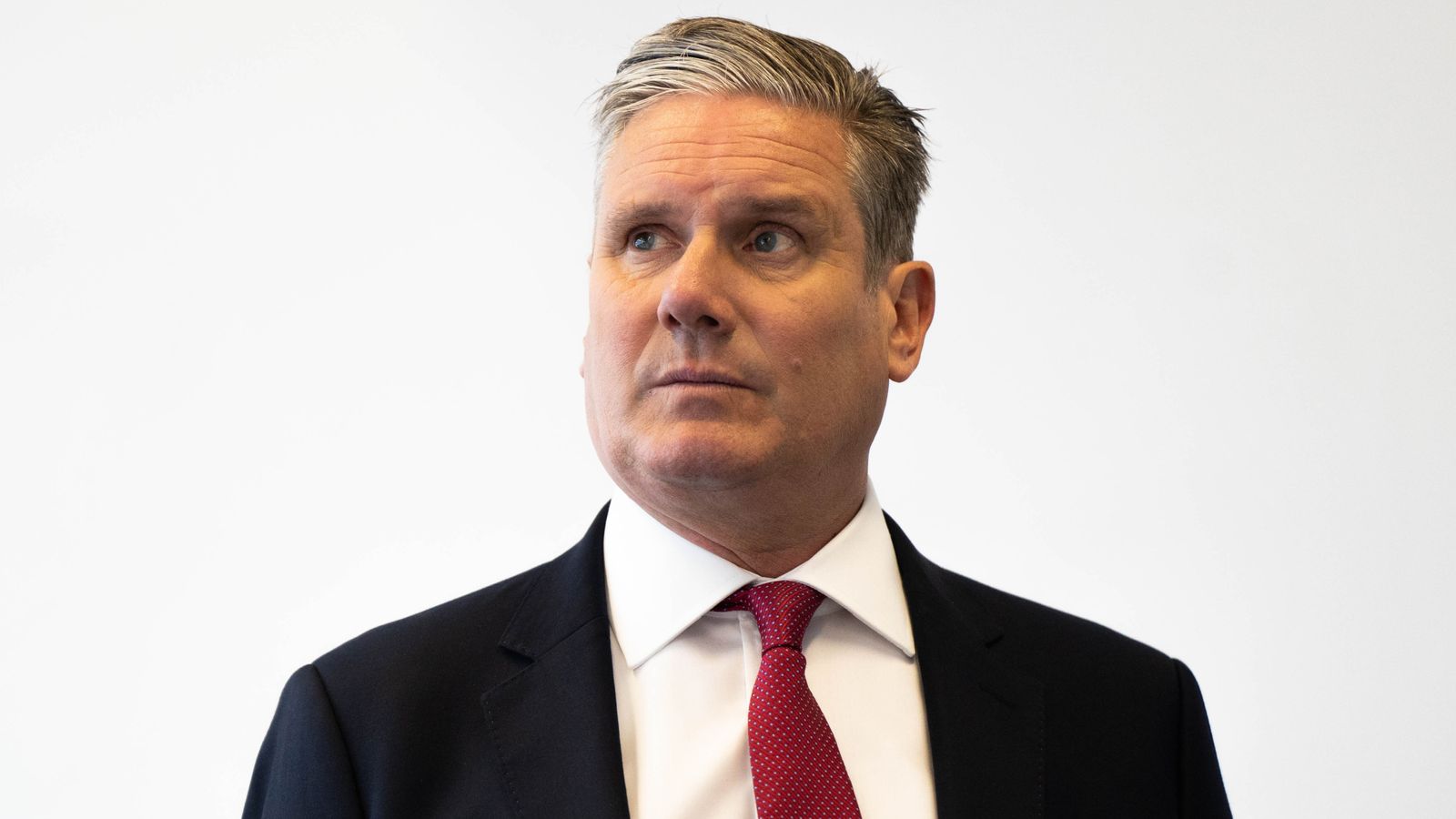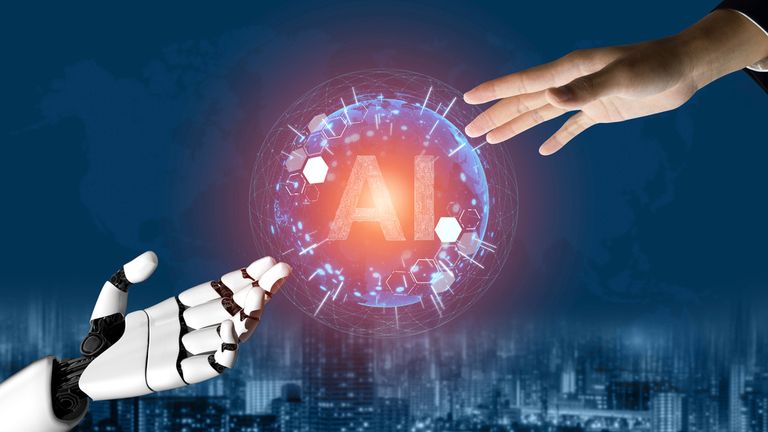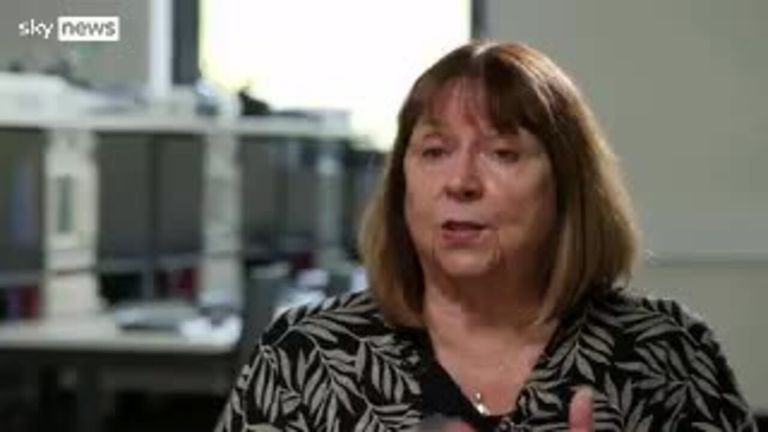Deepfake videos of Sir Keir Starmer have been posted on the first day of Labour Party conference in a move that underlines the threat posed by deepfake technology and AI in UK politics.
The fake video of the Labour leader emerged on X, formerly known as Twitter, on Sunday morning as senior figures and party activists gathered in Liverpool.
A deepfake usually involves an image or video in which a person or object is visually or audibly manipulated to say and do something that is fabricated.
Read more: Heckler removed from stage before Rayner speech – conference latest
The first fake audio, posted by an account with less than 3,000 followers, purports to capture the Labour leader abusing party staffers – but the audio is not real and the incident did not happen.
The second makes out that Sir Keir is criticising the city of Liverpool.
The emergence of the audio is reminiscent of the recent elections in Slovakia, where a fake audio recording emerged of Michal Šimečka, the leader of the Progressive Slovakia Party, apparently engaged in a conversation with a leading journalist from a daily newspaper discussing how to rig the election.
The pair immediately confirmed that the audio was fake and that the conversation did not happen.
Analysis by the AFP news agency found that the audio showed signs of being manipulated with AI.
Former populist prime minster Robert Fico ultimately won the election on a ticket to withdraw his country’s military support for Ukraine.
It is unclear what impact, if any, the false video had on the outcome of the election, but the journalist featured in it, Monika Todova, later told the the Times she was “disgusted” by it.
“It’s my words, but not my sentences,” she told the newspaper.
“My friends and our readers realise it’s a deepfake, but people who voted for Smer-SD or Republic [a far-right party] think it’s real.”
Back home there have been similar warnings about the threat AI poses to UK democracy.
Dame Wendy Hall, one of the world’s leading computer scientists, issued a stark warning in an interview with Sky’s Beth Rigby in which she said AI will threaten UK democracy ahead of upcoming elections here and the United States.
Speaking on Beth Rigby Interviews… Dame Wendy Hall said AI’s ability to damage democracy should be more of an immediate concern than any existential threat posed by the technology.
“Next year we will see a growth in disinformation, the deep fakes of this world, because AI makes it very easy to do that,” she said.
“You can just get the tools off the internet and it’s getting harder and harder to detect that a video, or a photo, or a piece of text has been faked.”
Dame Wendy sits on the government’s AI Council, an “independent expert committee” providing “advice to government and high-level leadership of the AI ecosystem”.
She is also the regius professor of computer science at the University of Southampton where one of her specialties is AI.
“We’ve got two major elections coming up next year – the US, UK – and the EU have got elections as well,” she said.
“I see this as a threat to democracy. In the sense that we’ve got to help people understand where they’re getting the messages from.
“I think that’s more important than worrying about an existential threat in 100 years’ time, but, I’m not saying the existential threat isn’t there,” she added.
Read more:
‘Sickening rise’ in AI-generated child sex abuse images ‘inciting paedophiles to commit more crimes’
ChatGPT creator Sam Altman expresses concern about ‘under-regulation’
“So we have to prepare for the fact that we are keeping the AI under our control, so that we don’t become the slaves to that master, which is where the regulation comes in.”
The government is due to hold a global AI summit on 1 and 2 November, where Dame Wendy wants the government to focus on deep fakes.
“We need people to quite quickly pull together the technology that’s used to detect fakes and to ensure that something is coming from a trusted source,” she said.
It is not just the world of politics that has been threatened by AI.
Actor Tom Hanks recently spoke out after a fake advert appeared to use his face to promote a dental plan but which Mr Hanks said had used an artificial AI version of him without his authorisation.


